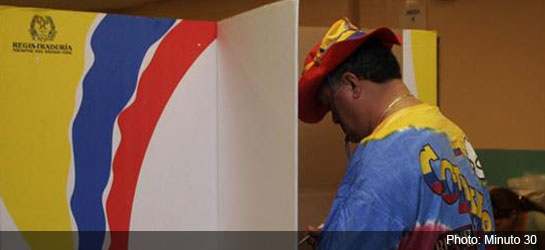
The International Crisis Group (ICG) has released a report recommending strategies to shelter the October 2011 elections from criminal groups.
According to the ICG, an NGO which focuses on the resolution of violent conflicts around the world, corruption and the capture of public resources could become “the greatest threat to local democracy and national security” in Colombia.
The report, entitled “Cutting the Links Between Crime and Local Politics: Colombia’s 2011 Elections,” advised the Colombian government to “rigorously implement additional measures to protect candidates and shield the electoral process against criminal infiltration, corruption and fraud.”
Colombia has already taken some important steps to minimize electoral corruption, including strengthening electoral finance rules and anti-corruption norms, the ICG said, but it must work harder to reform the legal framework of the election process.
The ICG report identified the representation on the National Electoral Council as a factor in the electoral corruption in Colombia. The council is currently composed of only delegates from the coalition parties, without opposition. The National Electoral Council needs to become more independent, the report recommended, in order to better “exercise its oversight responsibilities.”
The ICG also advised political parties to reject all prospective candidates “with a questionable past, including those who are close relatives of politicians linked to paramilitaries or who are put forward by politicians linked to illegal armed actors.”
Candidates in the October elections should “voluntarily and publicly report campaign contributions and campaign spending well ahead of the elections,” the report said.
To minimize the risk of electoral fraud, the ICG recommended that the Colombian government “provide additional resources to ensure that the biometric voter identification system can be used in the 2011 elections, at least in the departments with the highest risk of electoral fraud.”
The biometric identification system prevents voters from voting twice by checking voter identification cards and scanning fingerprints. Colombian Minister of the Interior German Vargas Lleras, however, has said that Colombia will not be able to afford biometric systems for the upcoming elections.
The report also requested that the government invite electoral observers from the Organization of American States (OAS) to provide international oversight. The OAS observers should focus on Colombian departments and municipalities highly prone to electoral fraud or violence and on ballot counting, the ICG advised.
According to the Colombian National Registrar, the departments with the highest risk for voter fraud are Cesar, Atlantico and Antioquia.

